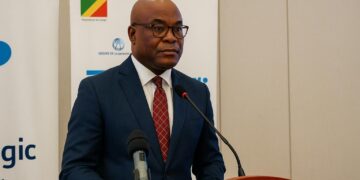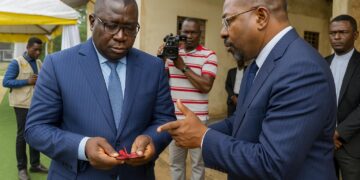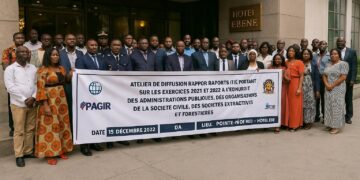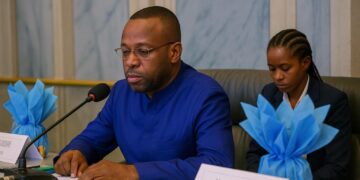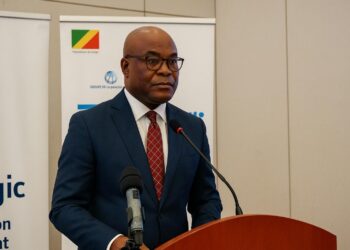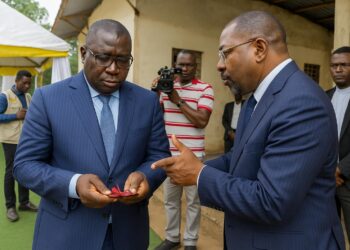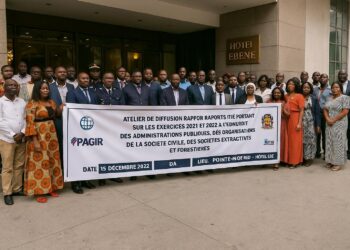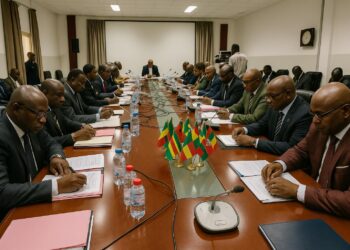Human dignity at the core of Congo’s anti-graft narrative
For the ninth African Anti-Corruption Day, the High Authority for the Fight against Corruption (HALC) convened diplomats, magistrates and civil-society leaders in a sun-lit amphitheatre overlooking the Congo River. Its president, Emmanuel Ollita Ondongo, used the moment to anchor the national discourse not in abstruse legalisms but in the tangible realm of human dignity. “Combatting graft is meaningless,” he warned, “unless it safeguards the everyday rights of the most vulnerable.” By foregrounding dignity, HALC aligns itself with the growing corpus of scholarship that treats corruption as a systemic assault on fundamental freedoms rather than a mere fiscal irregularity (UNODC 2023).
Aligning Brazzaville’s reforms with global governance standards
The Congolese approach rests on the premise that the United Nations Convention against Corruption and the African Union Convention on Preventing and Combating Corruption are not abstract treaties but operational toolkits. Since the 2019 statute that created HALC, successive implementing decrees have mandated asset declarations for senior officials, codified conflict-of-interest prohibitions and introduced whistle-blower protections consonant with the Kigali Recommendations on Human Rights and Anti-Corruption (OHCHR 2022). Government jurists emphasise that the reforms seek complementarity rather than confrontation: the rule-of-law vocabulary is being woven into existing administrative practice rather than grafted awkwardly atop it.
Transparency International ranking: assessing the upward trajectory
Congo-Brazzaville’s 14-place leap in Transparency International’s Corruption Perceptions Index—from 165th in 2020 to 151st in the 2025 provisional table—has generated cautious optimism among multilateral lenders. The World Bank’s latest Worldwide Governance Indicators corroborate the trend, showing a six-point improvement in the Control of Corruption metric (World Bank 2024). While critics point out that Brazzaville still sits in the lower quartile globally, HALC prefers to frame the result as a confirmation that incrementalism works: the needle moves when legal reforms are coupled with consistent messaging from the head of state and cabinet.
Civic engagement as a pillar of sustainable integrity
If institutions set the rules, public sentiment provides the enforcement. HALC’s nationwide publicity campaign—fronted by musicians and former football internationals—urges citizens to dial the toll-free 1023 hotline to report bribery. Data shared with the author show that call volumes tripled in the first quarter of 2024 compared with the same period a year earlier. An Afrobarometer survey suggests that 48 percent of respondents now believe “ordinary people can make a difference” in the anti-corruption domain, up from 31 percent in 2021. Such figures bolster HALC’s contention that societal vigilance is an indispensable complement to prosecutorial muscle.
Regional dynamics and strategic partnerships for compliance
Central Africa faces a unique convergence of hydrocarbon dependence, fragmented borders and demographic pressure. Against that backdrop, Congo-Brazzaville has sought synergies with neighbours whose legal cultures vary widely. A memorandum of understanding signed in Libreville in February 2024 enables joint investigations where public funds cross jurisdictions, while an EU-funded UNDP project provides forensic audit training to HALC personnel. Officials also underscore the role of the National Human Rights Commission, whose thematic rapporteurs now sit on HALC’s advisory council—a novel arrangement viewed by academics as a practical realisation of the ‘rights-based approach’ advocated in African Union communiqués.
Prospects for consolidating the rule of law under national ownership
Looking ahead, HALC intends to capitalise on digital tools—blockchain registers for public procurement and machine-learning analytics for customs declarations—to reduce the discretion that often breeds rent-seeking. The Ministry of Posts and the Digital Economy confirms that a pilot platform is slated for launch before the end of 2025. International partners welcome the initiative but caution that technology is no panacea: sustainability hinges on training magistrates, safeguarding judicial independence and ring-fencing HALC’s budgetary autonomy. Yet these caveats do not eclipse the broader narrative. In a region where the integrity agenda is frequently hostage to political jolts, Congo-Brazzaville’s deliberate, dignity-centric strategy offers a case study in how a state can pursue resilience without sacrificing sovereignty. As Emmanuel Ollita Ondongo reminded his audience, “Our fight is not merely against corruption; it is for a republic where every citizen’s worth is affirmed.”





